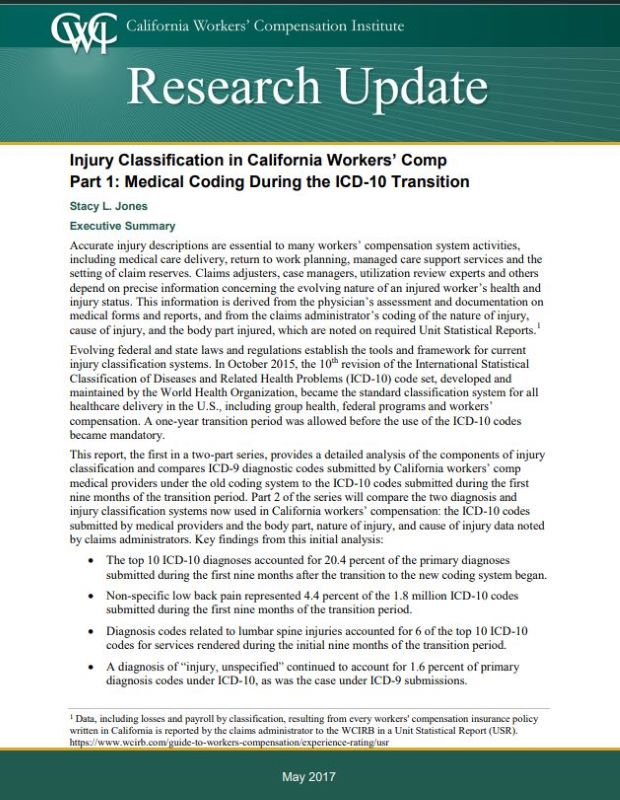In workers’ compensation, as in other healthcare delivery systems, diagnostic codes on physician reports, medical forms, and bills provide standard identifiers that facilitate communication between medical providers, providers and payers, and government agencies, while also providing researchers and analysts with clinically relevant groupings that allow for more accurate and precise utilization and cost trend analyses. In October 2015, the 10th revision of the International Statistical Classification of Diseases and Related Health Problems (ICD-10) became the official injury classification system for all healthcare delivery in the U.S. To generate benchmark data for measuring changes in workers’ compensation medical coding and to assess the level of coding compliance after the ICD-10 transition began, the Institute used medical billing data from the IRIS database to examine the diagnosis codes submitted on bills for treatment rendered in the last nine months under the ICD-9 system (January through September 2015) and compared the results to the ICD-10 codes submitted in the first nine months after the ICD-10 transition began (October 2015 through June 2016).
